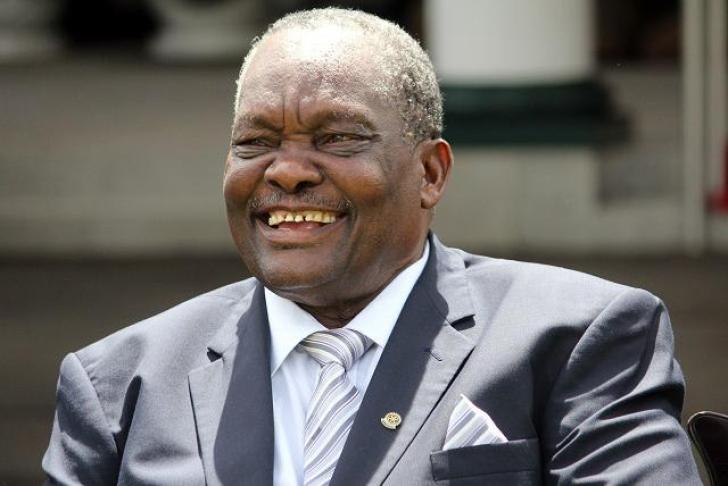News / National
Justice Sello Nare buried at Lady Stanley Cemetery
05 Oct 2024 at 15:10hrs |
0 Views

The burial of Retired Justice Sello Nare was today buried at Lady Stanley Cemetery in Bulawayo, a resting place reserved for distinguished senior citizens and individuals who made significant contributions to the city's development. Nare, a respected figure in both education and law, passed away earlier this week, leaving behind a legacy marked by his efforts to promote peace and justice in Zimbabwe.
Born in 1943 in Kafusi, Gwanda, Matabeleland South, Nare chaired the National Peace and Reconciliation Commission (NPRC), a body tasked with addressing the Gukurahundi massacres in an effort to help the nation heal from one of its darkest chapters. His work with the NPRC was central to Zimbabwe's efforts to reconcile and move forward from the tragic events of the 1980s.
Nare's contributions spanned several fields. A former headmaster and later a judge, he made a significant impact on education, labour law, and human rights. His career began in education, where he taught in Zvishavane and Gwanda from 1963 to 1970. By 1971, he had risen to the position of headmaster, but soon transitioned into law, where he would make his most lasting mark.
In 1981, Nare began his legal career as a magistrate in Bulawayo, Hwange, and Chiredzi, eventually serving as a provincial magistrate in Mashonaland West in 1984. His legal expertise earned him positions as a provincial administrator, regional magistrate, and eventually Judge President of the Administrative Court and President of the Labour Court.
Even in retirement, Nare continued to serve, chairing the Lupane State University Staff Disciplinary Committee and acting as an elder in the Church of Christ Congregation in Bulawayo.
A man of deep cultural roots and linguistic fluency, Nare spoke five indigenous languages - Sotho (his native dialect), Venda, Ndebele, Shona, and Nyanja - and had a working knowledge of Kalanga, Shangani, and Nambya. His linguistic skills reflected his commitment to embracing Zimbabwe's cultural diversity.
Nare's passing marks the end of an illustrious career dedicated to the service of his country. As the nation bids farewell to one of its finest sons, his legacy in education, law, and peacebuilding will continue to inspire future generations.
Born in 1943 in Kafusi, Gwanda, Matabeleland South, Nare chaired the National Peace and Reconciliation Commission (NPRC), a body tasked with addressing the Gukurahundi massacres in an effort to help the nation heal from one of its darkest chapters. His work with the NPRC was central to Zimbabwe's efforts to reconcile and move forward from the tragic events of the 1980s.
Nare's contributions spanned several fields. A former headmaster and later a judge, he made a significant impact on education, labour law, and human rights. His career began in education, where he taught in Zvishavane and Gwanda from 1963 to 1970. By 1971, he had risen to the position of headmaster, but soon transitioned into law, where he would make his most lasting mark.
In 1981, Nare began his legal career as a magistrate in Bulawayo, Hwange, and Chiredzi, eventually serving as a provincial magistrate in Mashonaland West in 1984. His legal expertise earned him positions as a provincial administrator, regional magistrate, and eventually Judge President of the Administrative Court and President of the Labour Court.
Even in retirement, Nare continued to serve, chairing the Lupane State University Staff Disciplinary Committee and acting as an elder in the Church of Christ Congregation in Bulawayo.
A man of deep cultural roots and linguistic fluency, Nare spoke five indigenous languages - Sotho (his native dialect), Venda, Ndebele, Shona, and Nyanja - and had a working knowledge of Kalanga, Shangani, and Nambya. His linguistic skills reflected his commitment to embracing Zimbabwe's cultural diversity.
Nare's passing marks the end of an illustrious career dedicated to the service of his country. As the nation bids farewell to one of its finest sons, his legacy in education, law, and peacebuilding will continue to inspire future generations.
Source - online
Join the discussion
Loading comments…
































